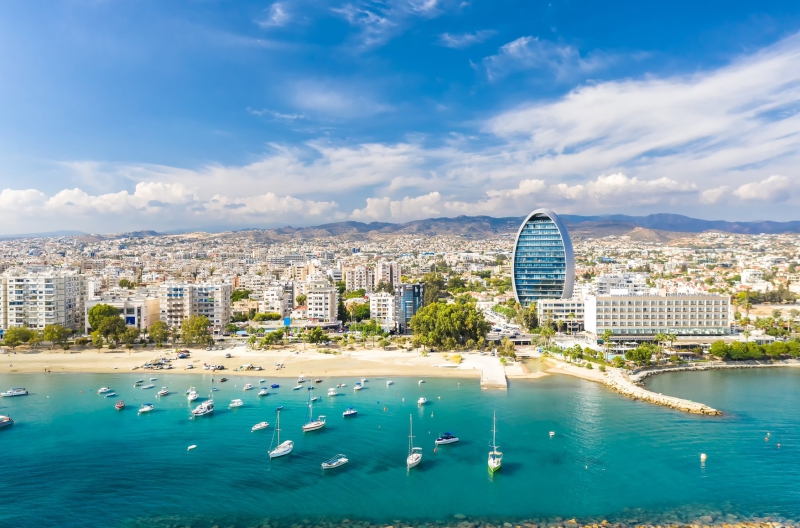Over the weekend, Cypriot publication Politis released a list of 77 investors whose “golden” passports were revoked by the country’s authorities. The daily obtained and published the official list of revoked citizenships, including the names of the holders and the service providers — such as law firms and audit offices — that facilitated their applications.
Earlier reports highlighted individual cases of Cypriot passports being revoked, but the latest list published by Politis is the most extensive so far.
It includes several Russians from the Forbes Billionaires List, such as:
- aluminum magnate and Rusal founder Oleg Deripaska;
- Igor Kesaev, owner of the Mercury Group and Megapolis Group (Russia’s leading tobacco distributor), shareholder of the Degtyarev weapons plant;
- Mikhail Gutseriev, main shareholder of the Safmar Group;
- Alexey Kuzmichev, one of the founders of Alfa Group;
- Alexander Ponomarenko, construction tycoon, former chairman of the board of Moscow’s Sheremetyevo International Airport;
- Vadim Moshkovich, longtime chairman of agro-industrial firm Rusagro and former Russian MP;
- Sergey Lomakin, co-founder of Russian discount retail chain Fix Price, owner of Cypriot football club Pafos FC.
Several billionaires, including Deripaska, Kesaev, and Gutseriev, are under international sanctions.
The Cypriot list also includes Ukrainian oligarch Ihor Kolomoyskyy and Oleg Bakhmatiuk, owner of the agricultural company UkrLandFarming.
Politis reported the existence of a secret list with nine additional names, bringing the total number of investors and their family members losing their passports to 86. The publication added that the cases of all investors whose passports have been revoked will be further investigated by the Cyprus police.
According to the independent Russian media outlet Agentstvo, the list includes four former owners or top managers of Probusinessbank and the Life group: Alexander Zheleznyak, Yaroslav Alekseev, Alexander Lomov, and Eduard Panteleev.
An investigation by The Insider released in October exposed Leontiev and Zheleznyak as key figures in a money laundering scheme that funneled hundreds of billions of dollars offshore on behalf of Russian officials. It was previously reported that the Life Group had assets in Cyprus, while Alekseev and Sergey Leontiev had obtained Cypriot citizenship.
Passports issued to the investors’ family members have also been revoked. The exact number is listed in parentheses in the images below.
“Golden” passports refer to those granted by a country in exchange for significant financial investment, typically under programs designed to attract wealthy individuals.
The grounds on which each decision was made were not indicated. Politis cited the Cyprus Council of Ministers as providing three main reasons for the withdrawal of citizenships:
- Submission of false or misleading information.
- Criminal records of the applicants.
- Failure to meet the program’s terms and conditions.
According to Politis, twenty investors that received “golden passports” are facing charges in their home countries for crimes including corruption, collusion, tax evasion, embezzlement, fraud, money laundering, involvement in criminal organizations, and illegal gambling operations.
The list notably includes fugitive Malaysian businessman Jho Low, who is wanted by Interpol for allegedly embezzling $4.5 billion from Malaysia’s 1MDB sovereign wealth fund. Low obtained a Cypriot “golden” passport in 2015 after buying a mansion for €5 million ($5.28 million) in the resort town of Agia Napa. He also received help from the former head of the Church of Cyprus, late Archbishop Chrysostomos II, who received a €310,000 donation from the businessman — and later admitted to sending a letter of recommendation for Low to support his application to secure a passport.
Just two months after Low was granted citizenship, he was revealed as an internationally wanted fraudster. The Archbishop returned the donation after the news broke, claiming he was unaware of Low’s criminal status. “We wish to return the donation of 310,000 euros since this money is stolen,” he commented.
Despite the news coming to light in 2015, the Politis report indicates Low’s Cypriot passport was only revoked in June 2024, almost nine years later — a delay attributed to lengthy legal procedures and appeals filed by Low’s lawyers in Cypriot courts.
According to Cypriot law, individuals impacted by the Council of Ministers' decision are notified of the revocation, given the reasons behind it, and informed of their right to appeal. Should their appeal be denied, they can challenge the decision in court, where a favorable verdict could result in the restoration of their citizenship.
The Cyprus Investment Program (CIP), launched in 2007 to attract foreign investment, initially required a €25 million contribution — later reduced to €2.5 million in 2013 in order to generate broader appeal. The program faced mounting criticism over its lax vetting procedures.
In 2020, Al Jazeera's “Cyprus Papers” investigation revealed that Cypriot passports had been granted to individuals with criminal records or under international sanctions, sparking public outrage in the country. This led the Cypriot government to terminate the CIP on Nov. 1, 2020.
Hundreds of passports have since been revoked, and investigations into the CIP and the citizenship by investment scheme are ongoing.
“Golden” passports refer to those granted by a country in exchange for significant financial investment, typically under programs designed to attract wealthy individuals.

